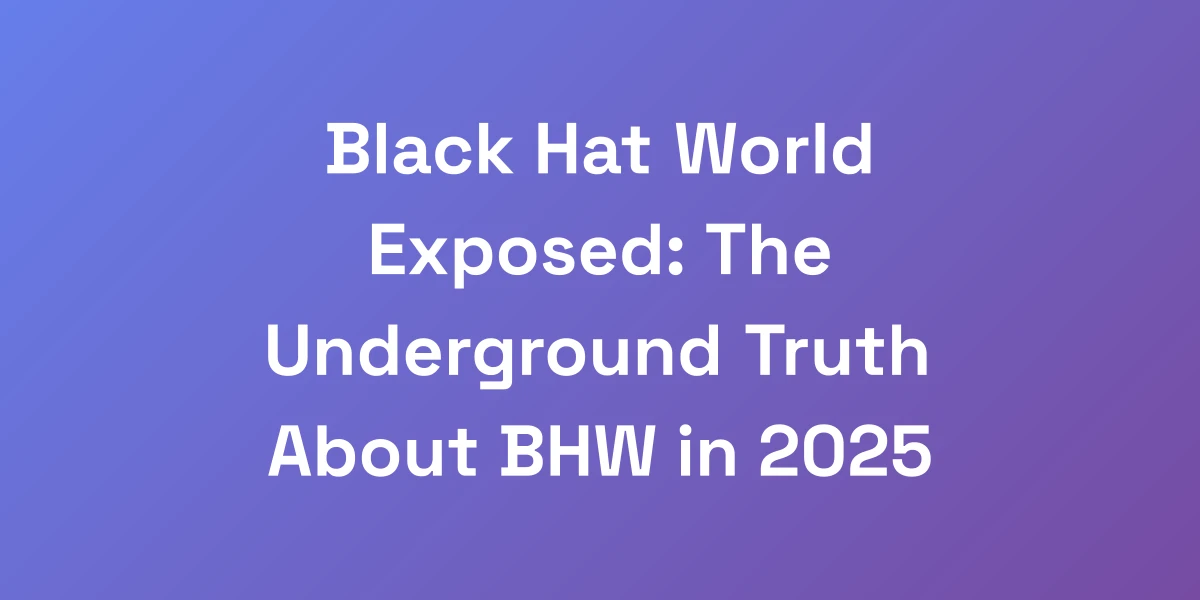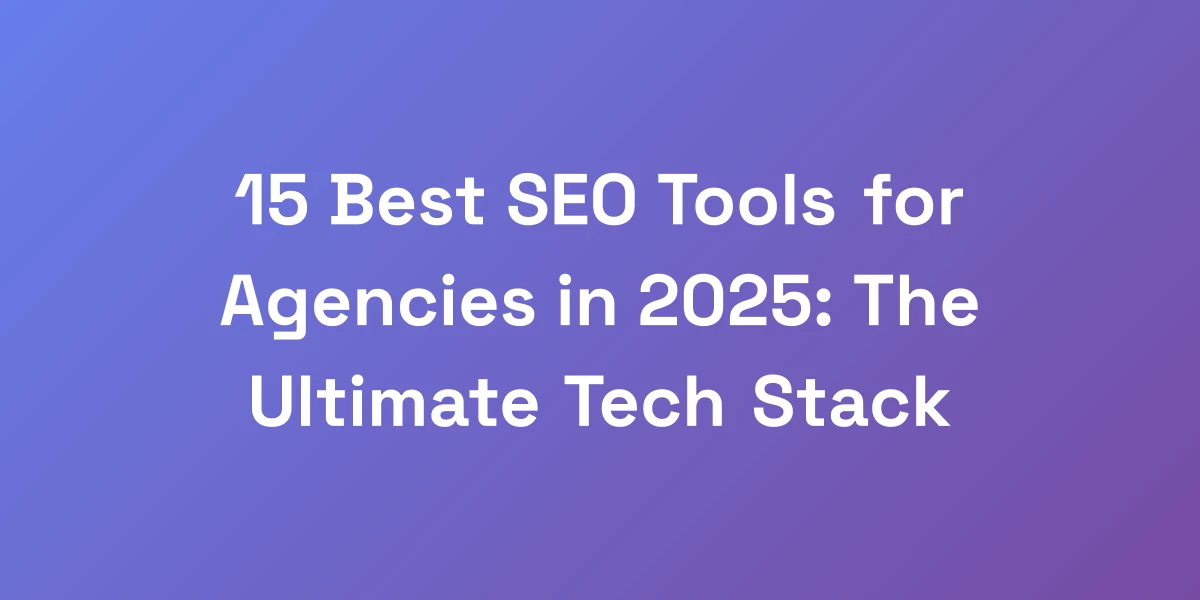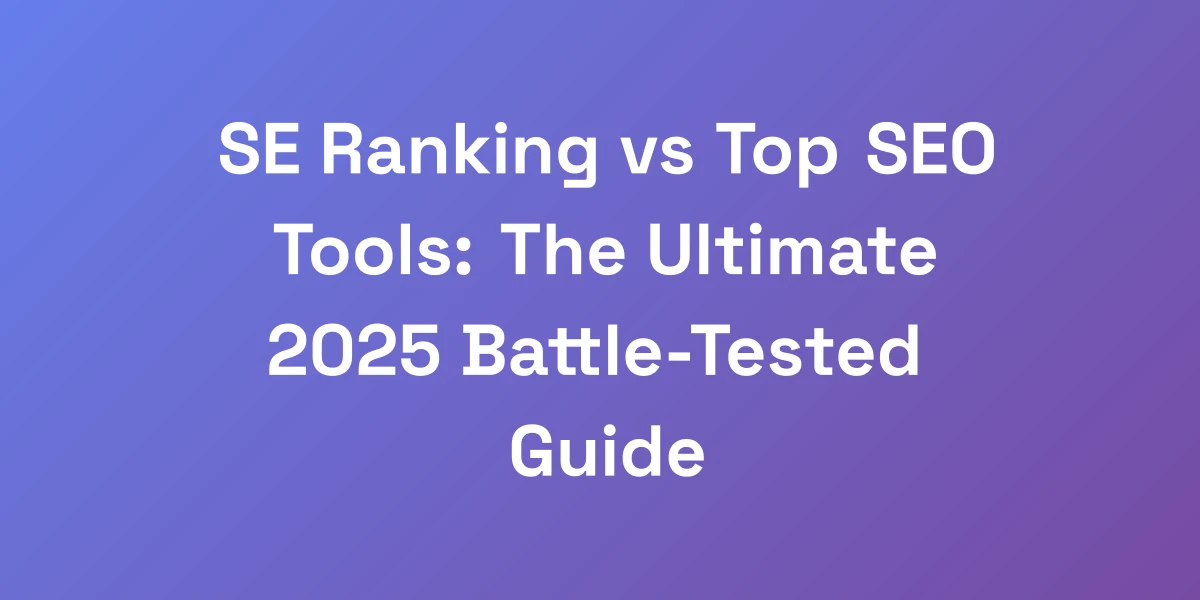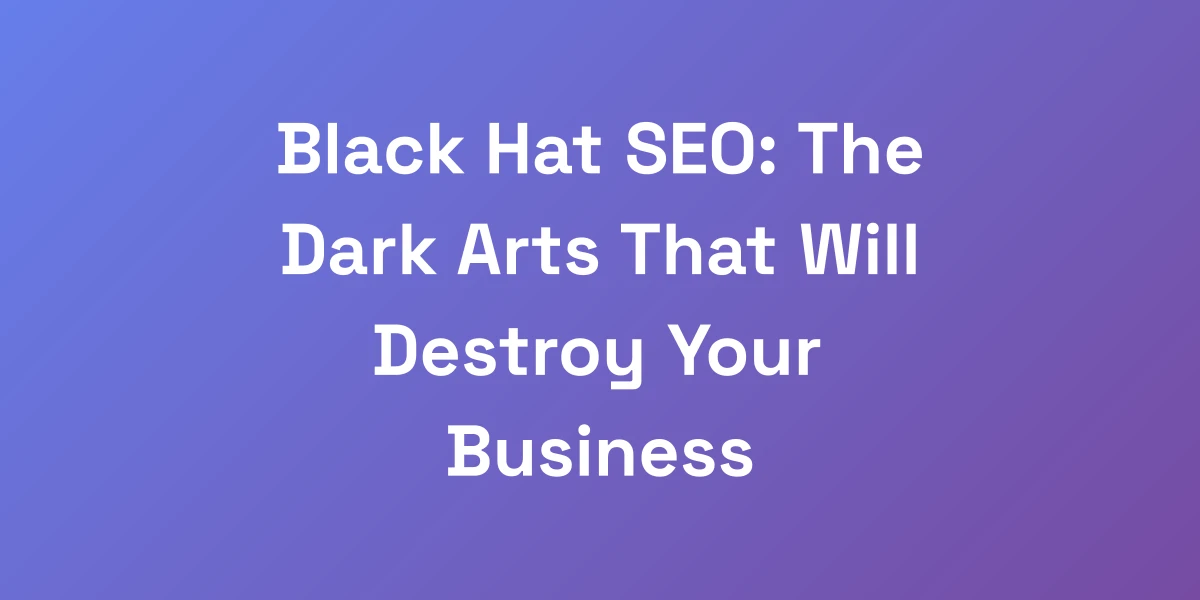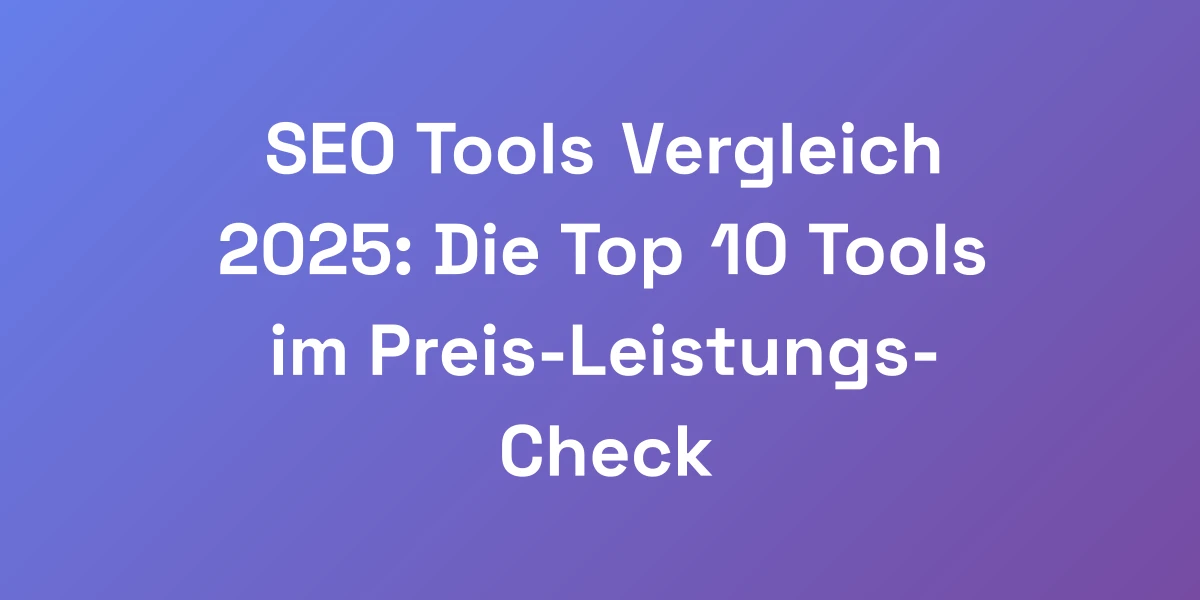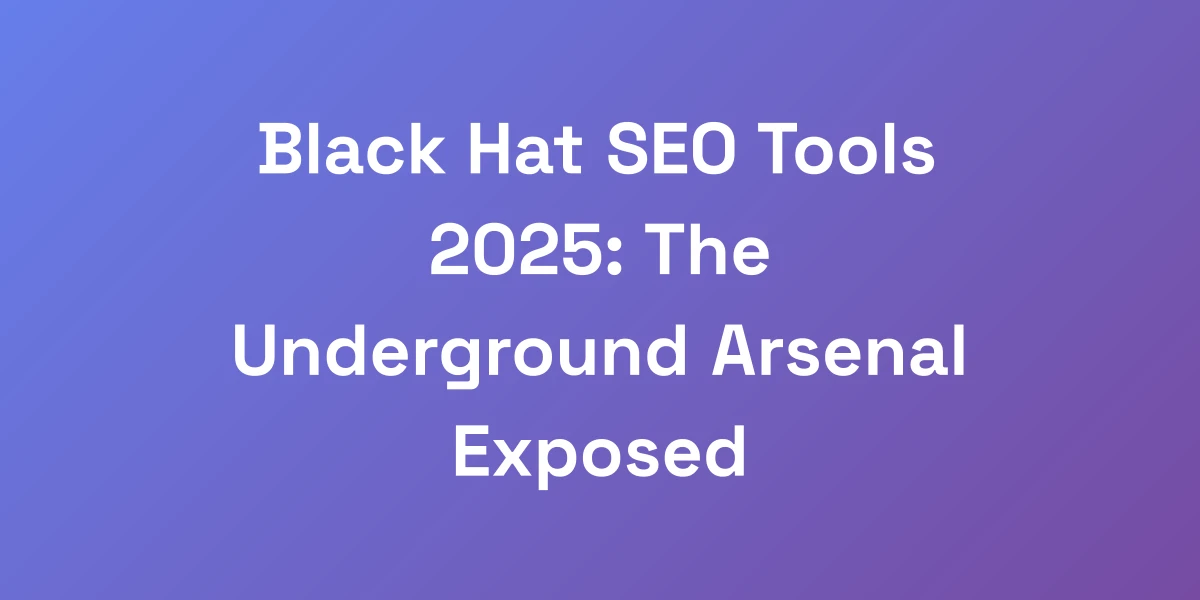
Black Hat SEO Tools 2025: The Underground Arsenal Exposed
Mar 13, 2025 | By [email protected]
Introduction
We’ve all seen it—websites skyrocketing to the top of search results overnight, only to plummet weeks later. It’s tempting to think there’s a shortcut, a secret weapon that can master the search engines for us. Enter Black Hat SEO Tools. These tools promise rapid success, but they come with hidden dangers that could spell disaster for your business.
Imagine investing thousands into something that could ruin your online presence instead of boosting it. It’s not just a possibility—it’s a reality for many entrepreneurs who gamble with unethical SEO tactics. But understanding these tools is your first line of defense. We’re here to dismantle the myths, reveal the truth behind these underground weapons, and show you why playing fair is the only way to sustain long-term success.
Ready to dive into the shadowy world of Black Hat SEO? Let’s uncover the tools that could either make or break your digital empire.
The Dark Reality of Black Hat SEO Tools in 2025
Let us be brutally honest with you—we’ve seen countless entrepreneurs flush their digital assets down the toilet trying to game the system with black hat SEO tools. Here’s the raw truth: while these tools promise overnight success, they’re playing Russian roulette with your business’s future. But knowledge is power. Understanding these tools isn’t just about knowing what to avoid—it’s about recognizing when your competitors are using them against you. Let’s dive into this digital arms race and expose the tools that are shaping the underground SEO landscape.
The Evolution of Black Hat Tools
Black Hat SEO tools have come a long way since the early days of keyword stuffing and link farms. Today, they’re sophisticated, leveraging AI and automation to manipulate search engine algorithms more efficiently and covertly.
Think about it—what was once done manually is now automated, allowing even novices to execute complex SEO strategies without deep technical knowledge. Tools that can create thousands of backlinks in minutes or generate content that mimics human writing have made Black Hat SEO more accessible but also more dangerous.
This evolution means that the arms race between black hat enthusiasts and search engine developers has intensified. As these tools become more advanced, so do the algorithms designed to detect Black Hat SEO tactics.
Actionable Tip: Stay informed about the latest SEO tools and algorithm updates. Knowledge of both can help you identify suspicious activities and protect your website from potential penalties.
Current Market Overview
The market for Black Hat SEO tools is thriving, with estimates putting the industry size at over $500 million. Despite the risks, the lure of quick wins keeps entrepreneurs coming back for more.
These tools are often marketed in underground forums and shadowy corners of the web, promising guaranteed results. From automated content spinners to sophisticated link-building systems, the variety of options is staggering.
However, what they don’t tell you is the high failure rate and the potential for severe penalties. The majority of users end up facing more harm than good, from being de-indexed by Google to suffering irreversible damage to their brand reputation.
Example: A startup invested heavily in a suite of Black Hat SEO tools, seeing initial traffic spikes. Within months, Google identified the manipulative tactics, imposed penalties, and the website was virtually invisible in search results, leading to significant revenue loss.
Actionable Tip: Rather than chasing these fleeting gains, focus on sustainable SEO practices that build long-term credibility and organic growth.
Risk vs. Reward Analysis
At first glance, the rewards of using Black Hat SEO tools appear enticing—quick traffic boosts, higher rankings, and seemingly fast conversions. But let’s break down what’s really at stake.
- Immediate Gains: Rapid increases in traffic and rankings can seem like the perfect marketing strategy.
- Long-term Risks: The possibility of AI-driven algorithm updates catching on spamming techniques, resulting in penalties that could wipe out your online presence.
- Reputation Damage: Being associated with unethical practices can erode trust with both customers and partners.
Consider this: the short-term gains could lead to long-term losses that outweigh any initial successes. It’s akin to building a house on sand—unstable and likely to collapse under pressure.
Actionable Tip: Perform a thorough cost-benefit analysis before considering Black Hat SEO tools. Often, the potential losses surpass the temporary highs.
Detection and Penalties
Google’s algorithms have become incredibly adept at detecting Black Hat tactics. From keyword stuffing to unnatural backlinks, the signs are easier to spot and penalties are harsher than ever. For a comprehensive list, see the top 13 Google penalties.
Algorithmic penalties automatically demote or remove sites based on detected violations, while manual penalties involve human reviewers imposing stricter sanctions.
Case Study: A tech website implemented cloaking techniques to present different content to search engines and users. Google’s advanced algorithms detected the discrepancy, leading to a manual penalty that decimated their traffic and credibility overnight.
Actionable Tip: Regularly audit your SEO practices and ensure compliance with the latest Google guidelines to avoid accidental violations that could trigger penalties.
Legal Implications
Using Black Hat SEO tools doesn’t just put your SEO at risk—it can also lead to legal troubles. Practices like trademark infringement or copyright violations, often facilitated by these tools, can result in lawsuits and significant financial penalties.
Imagine using automated tools to generate content that infringes on someone’s intellectual property. Not only could you be hit with Google penalties, but you could also face legal actions that drain your resources and tarnish your reputation. Read about Black Hat SEO in trademark infringement cases.
Example: A company used automated scraping tools to duplicate content from competitors, leading to a trademark infringement lawsuit. The legal costs and damages were astronomical, far exceeding any initial SEO gains.
Actionable Tip: Prioritize ethical SEO strategies that respect intellectual property rights and avoid practices that could lead to legal consequences.
Most Powerful Black Hat SEO Tools Dominating 2024
Look, we’re going to show you the tools that are making waves in the black hat community—not because we endorse them, but because ignorance isn’t bliss in this game. These are the weapons being used in the digital warfare happening right under your nose. From content spinners that can pump out thousands of articles in minutes to link building tools that create massive PBN networks, these are the tools that can make or break your website’s future. Understanding their capabilities is crucial for protecting your digital assets.
Content Generation and Spinning Tools
Automated content generation tools are the backbone of many Black Hat strategies. These tools can quickly produce large volumes of seemingly unique content by spinning existing articles to evade detection.
Consider a tool that takes a single article and generates dozens of variations, each slightly different but fundamentally the same. This flood of content can temporarily boost your site’s content quantity, but the quality is often subpar, leading to poor user experience and increased bounce rates.
- Pros: Rapid content creation, cost-effective.
- Cons: Low-quality content, higher risk of penalties.
Example: A content spinner was used by a blog to generate thousands of articles overnight. Initially, the traffic surged, but Google’s algorithms quickly identified the duplicate and poor-quality content, resulting in a severe drop in rankings and credibility.
Actionable Tip: Invest in high-quality content creation tools that focus on originality and value, ensuring your content meets both user expectations and search engine standards.
Link Building Automation Systems
Link building remains a cornerstone of SEO, and black hat automation systems can create vast amounts of backlinks with minimal effort. These systems generate links from multiple sources, often through Private Blog Networks (PBNs), to inflate your site’s authority artificially.
However, these links are typically low-quality, coming from irrelevant or spammy sites, which can easily be flagged by search engines. The temporary boost in authority is quickly overshadowed by the risk of massive penalties once detected.
- Pros: Quick increase in backlink count, temporary authority boost.
- Cons: High risk of penalties, low-quality backlinks.
Case Study: A website used an automated link building system to create thousands of backlinks from various PBNs. The influx of links initially improved their rankings, but Google’s Penguin update identified the unnatural link patterns, resulting in drastic penalties and loss of organic traffic.
Actionable Tip: Focus on building genuine, high-quality backlinks through outreach, partnerships, and creating valuable content that naturally attracts links.
Cloaking and Redirect Software
Cloaking involves showing different content to search engines than what is visible to users. This deceptive practice is facilitated by sophisticated software that ensures search engines see an optimized version of your site, while visitors see a different interface.
Redirect software can manipulate user behavior by directing traffic to unintended pages, often leading to a poor user experience and suspicion from search engines.
- Pros: Can manipulate rankings and user experience in the short term.
- Cons: High risk of detection, severe penalties, and loss of trust.
Example: A retailer used cloaking software to present keyword-stuffed pages to search engines while showing a clean, user-friendly site to visitors. Once detected by Google’s advanced algorithms, the site was penalized, leading to a dramatic decline in traffic and sales.
Actionable Tip: Ensure that the content shown to both search engines and users is consistent and valuable, maintaining transparency and trustworthiness.
SERP Manipulation Tools
SERP manipulation tools aim to control the appearance of search engine result pages (SERPs) to favor certain content or exclude competitors. These tools can use techniques like negative SEO to target rival websites, attempting to lower their rankings through various malicious tactics.
While it may seem like an effective way to gain an edge, these actions are unethical and can lead to personal and legal consequences if discovered.
- Pros: Potential to undermine competitors’ rankings.
- Cons: Ethical violations, risk of countermeasures, possible legal action.
Actionable Tip: Instead of focusing on tearing down competitors, build your own strong, ethical SEO strategy that emphasizes quality and user satisfaction.
Scraping and Analysis Platforms
Scraping tools are used to extract large amounts of data from other websites, often for content duplication or competitive analysis. These platforms can gather data on competitors’ strategies, products, or content, enabling users to replicate or manipulate successful elements.
However, unauthorized scraping can lead to legal issues and ethical concerns, not to mention the potential for being blocked by the targeted websites or search engines.
- Pros: Access to vast amounts of data, useful for competitive intelligence.
- Cons: Legal risks, potential for blacklisting, ethical violations.
Example: A website used scraping tools to copy product descriptions from competitors, flooding the market with duplicate content. This not only led to legal challenges but also diminished the site’s credibility and user trust.
Actionable Tip: Use scraping tools responsibly and ethically, ensuring that you’re not violating any laws or infringing on others’ intellectual property rights. Focus on creating unique, valuable content instead.
The Hidden Cost of Black Hat SEO Tools
Let’s talk money—not just the price tag on these tools, but the real cost to your business. We’ve seen companies lose millions in revenue overnight when Google caught them using these techniques. The Black Hat tools marketplace is a $500M+ industry, but here’s what they don’t tell you: for every success story, there are hundreds of casualties. We’re going to break down the immediate gains versus the long-term consequences, and why the math simply doesn’t add up.
Financial Impact Analysis
At first glance, Black Hat SEO tools might seem like a cost-effective solution to boost your website’s performance. But let’s dive deeper into the financial implications. Consider the upfront investment in these tools—often ranging from hundreds to thousands of dollars monthly. Add to that the hidden costs of potential penalties, loss of revenue, and the expenses involved in recovering from a ban. Understanding SEO pricing models can help you allocate your budget more effectively.
- Initial Costs: Subscriptions or one-time purchases of black hat tools can add up quickly.
- Penalty Costs: Recovering from a Google penalty might involve hiring SEO experts, reworking your content, and losing organic traffic, all of which cost time and money.
- Long-Term Financial Damage: A damaged reputation can lead to decreased sales, loss of customers, and reduced brand value.
Example: A mid-sized ecommerce site invested heavily in Black Hat SEO. After receiving a Google penalty, their monthly revenue plummeted by 70%, leading to massive financial losses that took years to recover from.
Actionable Tip: Allocate your budget toward ethical SEO practices that provide sustainable growth and reduce the risk of financial losses due to penalties.
Brand Reputation Damage
Your brand is your most valuable asset online. Using Black Hat SEO tools can cause irreparable damage to your brand’s reputation.
Consumers trust brands that appear at the top of search results, but if those rankings are achieved through unethical means, the fallout once discovered can lead to a loss of trust and credibility. This erosion of brand reputation can have a cascading effect on customer loyalty and overall business success.
- Trust Issues: Customers are less likely to trust brands that have been penalized or associated with manipulative tactics.
- Negative Publicity: News about penalties or unethical practices can spread quickly, further damaging your brand image.
- Customer Retention: A tarnished reputation makes it harder to retain existing customers and attract new ones.
Case Study: A well-known blog used Black Hat SEO to gain traffic quickly. Once Google penalized the site, not only did the traffic drop, but loyal readers also lost trust in the brand, leading to declining readership and engagement.
Actionable Tip: Build and maintain a strong, positive brand reputation through transparent, ethical SEO practices and by consistently delivering value to your audience.
Recovery Costs and Timeframes
Recovering from penalties imposed due to Black Hat SEO practices isn’t just expensive—it’s time-consuming. The process often involves identifying the offending techniques, rectifying them, and appealing to search engines to lift the penalties.
- Audit and Cleanup: Conducting a thorough SEO audit to identify and remove all Black Hat elements.
- Rebuilding Trust: Re-establishing your site’s credibility with high-quality, genuine content and backlinks.
- Financial Outlay: Hiring experts, investing in legitimate SEO tools, and potentially compensating for lost revenue.
Statistics show that manual penalties can take between 10-30 days to resolve after fixes are implemented, while algorithmic penalties might require up to 2 years for full recovery. For more information, see the penalty recovery timeframes. Moreover, 40% of online businesses close down within 6 months of receiving a Google penalty, highlighting the severe impact on business continuity.
Actionable Tip: Avoid the risk entirely by adopting White Hat SEO strategies from the start, saving yourself from the costly and lengthy recovery process.
Lost Revenue Calculations
Let’s crunch some numbers. If a website that generates $100,000 a month in revenue drops to $30,000 due to a penalty, that’s a $70,000 loss each month. Multiply that by the months it takes to recover, and you’re looking at substantial financial damage that could cripple a business.
- Immediate Revenue Loss: Drastic drop in traffic leads to fewer sales and reduced income.
- Long-Term Financial Strain: Ongoing losses can deplete savings, disrupt operations, and reduce the ability to reinvest in the business.
- Opportunity Costs: Time and resources spent on recovery could have been used to grow the business ethically.
Example: An online retailer faced a 75% revenue decline after a Google penalty. Over six months, they lost nearly $500,000 in potential revenue, forcing them to downsize and rethink their entire SEO strategy.
Actionable Tip: Prioritize sustainable SEO practices that ensure steady, long-term revenue growth without the risk of sudden, devastating drops.
Alternative Investment Comparison
When comparing the investment in Black Hat SEO tools to legitimate SEO strategies, the balance clearly tips in favor of the latter. Investing in quality content, ethical link building, and user experience enhancements not only safeguards your business but also provides a solid foundation for growth.
- Black Hat SEO: High-risk, short-term gains, potential for significant losses.
- White Hat SEO: Lower risk, sustainable growth, long-term benefits.
Let’s look at ROI—while Black Hat methods might offer a quick spike in traffic, the eventual penalties and losses often negate any initial gains. On the other hand, White Hat strategies ensure consistent traffic growth, higher conversion rates, and a strong online presence that can weather algorithm changes.
Actionable Tip: Shift your investment towards ethical SEO practices that build a resilient online presence and provide a higher return on investment in the long run.
White Hat Alternatives That Actually Work
Here’s the thing—every Black Hat technique has a legitimate counterpart that’s actually more effective long-term. We’re going to show you how to achieve the same results without risking your digital empire. The key is understanding that sustainable growth isn’t about tricks—it’s about creating systems that compound over time. These are the strategies that built our 8-figure businesses, and they’ll work for you too.
Content Optimization Tools
High-quality business blogging is the cornerstone of effective SEO. White Hat content optimization tools help enhance your content’s relevance, readability, and engagement without resorting to manipulative tactics.
- Tools: Yoast SEO, SEMrush Content Analyzer, Grammarly.
- Benefits: Improved keyword usage, enhanced readability, better user engagement.
Example: Using SEMrush Content Analyzer, a blog identified gaps in their content strategy, allowing them to create more targeted, high-quality articles that significantly improved their organic rankings and user retention.
Actionable Tip: Regularly utilize content optimization tools to refine your content strategy, ensuring it meets both user needs and search engine criteria.
Legitimate Link Building Platforms
Effective link building is about acquiring high-quality backlinks from reputable sources. Legitimate platforms facilitate this by connecting you with influencers, guest posting opportunities, and authoritative websites.
- Platforms: Ahrefs, Moz Link Explorer, Pitchbox.
- Benefits: High-quality backlinks, improved domain authority, sustainable SEO growth.
Case Study: A startup used Pitchbox to reach out to industry influencers and secure guest posts on authoritative sites. This resulted in a steady increase in high-quality backlinks, boosting their search engine rankings and organic traffic sustainably.
Actionable Tip: Focus on building relationships and earning backlinks through valuable content and genuine outreach efforts.
Analytics and Tracking Solutions
Understanding your SEO performance is crucial for making informed decisions. White Hat analytics tools provide deep insights into your website’s performance, user behavior, and SEO effectiveness without manipulating data.
- Tools: Google Analytics, Google Search Console, Hotjar.
- Benefits: Accurate performance tracking, data-driven decision-making, enhanced user experience analysis.
Example: Utilizing Google Search Console, a website owner identified and fixed several technical SEO issues, leading to a noticeable improvement in search rankings and a better user experience.
Actionable Tip: Regularly monitor your website’s analytics to identify areas for improvement and track the success of your SEO strategies.
Automation Without Violation
Automation can streamline your SEO efforts without crossing ethical boundaries. White Hat AI-powered SEO automation tools help manage repetitive tasks, allowing you to focus on strategic growth.
- Tools: Hootsuite for social media scheduling, Buffer for content distribution, Screaming Frog for site audits.
- Benefits: Increased efficiency, consistent content publication, thorough technical SEO checks.
Example: By using Screaming Frog, a company automated their site audit process, quickly identifying and fixing broken links, duplicate content, and other technical issues, resulting in improved site health and better search engine performance.
Actionable Tip: Implement automation tools to handle repetitive SEO tasks, freeing up time for creative and strategic initiatives that drive growth.
ROI Comparison with Black Hat Methods
When comparing the return on investment (ROI) of White Hat versus Black Hat SEO methods, the benefits of ethical practices clearly surpass the high-risk gains of Black Hat tactics.
- White Hat SEO: Sustainable rankings, long-term traffic growth, enhanced brand reputation.
- Black Hat SEO: Temporary traffic spikes, high risk of penalties, potential financial and reputational losses.
Example: A business focused on White Hat SEO saw a steady increase in organic traffic and a strong online presence over two years. Meanwhile, a competitor using Black Hat methods experienced rapid initial growth but faced severe penalties within months, drastically reducing their traffic and sales.
Actionable Tip: Invest in White Hat SEO strategies that provide consistent, reliable growth and a solid foundation for your online presence.
Future-Proofing Your SEO Strategy
The game is changing faster than ever. Google’s AI is getting smarter by the day, and what worked in Black Hat SEO last month might get you banned today. Instead of chasing shortcuts, we’re going to show you how to build an SEO strategy that becomes stronger with every algorithm update. The future belongs to those who play the long game, and that’s exactly what we’re going to build.
AI and Machine Learning Developments
AI and machine learning are revolutionizing how search engines evaluate and rank content. Understanding these technologies is essential for creating an SEO strategy that adapts and thrives.
- Impact: Enhanced ability to understand context, semantics, and user intent.
- Strategy: Focus on creating high-quality, relevant content that aligns with user needs and search intent.
Example: Google’s BERT and MUM updates utilize AI to better understand the nuances of language, allowing for more accurate and relevant search results. Websites that prioritize clear, user-focused content are rewarded with higher rankings.
Actionable Tip: Stay updated on AI advancements in search algorithms and tailor your content strategy to meet the evolving standards of relevance and quality.
Emerging Search Engine Patterns
Search engines are continuously evolving, with new patterns and behaviors emerging that redefine SEO practices. Staying ahead means anticipating these changes and adapting your strategy accordingly.
- Voice Search: Optimizing for conversational queries and long-tail keywords.
- Visual Search: Enhancing image optimization and using descriptive alt texts.
- Local SEO: Focusing on local listings, reviews, and geo-targeted keywords.
Example: With the rise of voice search, businesses that optimized their content for conversational queries saw increased visibility in voice search results, tapping into a growing segment of users.
Actionable Tip: Monitor search engine trends and integrate emerging search patterns into your SEO strategy to maintain and enhance your online presence.
Compliance and Best Practices
Adhering to search engine guidelines is non-negotiable for maintaining a healthy SEO strategy. Compliance ensures that your website remains visible and reputable in the eyes of search engines.
- Guidelines: Follow Google’s Search Essentials, focus on user experience, avoid manipulative tactics.
- Best Practices: Regularly update content, ensure mobile-friendliness, optimize site speed.
Example: A website that strictly followed Google’s guidelines by focusing on user-centric content and technical optimization saw steady growth in their search rankings and organic traffic, without the risk of penalties.
Actionable Tip: Regularly review and adhere to search engine guidelines, incorporating best practices into your SEO strategy to ensure ongoing compliance and performance.
Strategic Planning Framework
A robust SEO strategy requires a clear framework that aligns with your business goals and adapts to changing algorithms. Strategic planning involves setting objectives, conducting thorough research, and continuously refining your approach.
- Goal Setting: Define clear, measurable SEO objectives that support your overall business goals.
- Research: Conduct comprehensive keyword research, competitor analysis, and audience insights to inform your strategy.
- Implementation: Develop and execute a plan that includes content creation, technical optimization, and link building.
Example: A company implemented a strategic planning framework that included setting specific SEO goals, researching high-value keywords, and creating targeted content. This structured approach led to consistent improvements in search rankings and organic traffic growth.
Actionable Tip: Establish a strategic planning framework for your SEO efforts, ensuring that each component aligns with your business objectives and adapts to the dynamic search landscape.
Risk Mitigation Techniques
Even with the best strategies, risks can arise in SEO. Implementing risk mitigation techniques helps safeguard your website against potential issues that could impact your rankings and online presence.
- Regular Audits: Conduct periodic SEO audits to identify and resolve technical issues and compliance gaps.
- Backup Plans: Develop contingency plans for potential search engine penalties or algorithm changes.
- Diversification: Avoid relying solely on one traffic source; diversify your marketing efforts to include social media, email marketing, and paid advertising.
Example: A website owner performed regular SEO audits, identifying and fixing broken links and duplicate content before they became major issues. This proactive approach minimized the risk of penalties and ensured a healthy, optimized site.
Actionable Tip: Implement comprehensive risk mitigation strategies as part of your SEO plan to address potential challenges proactively and maintain a resilient online presence.
Conclusion
We’ve journeyed through the shadowy underbelly of Black Hat SEO tools, uncovering the alluring promises and the stark realities behind them. The shortcuts these tools offer come with a hefty price tag that often far outweighs any temporary gains. From financial losses and reputational damage to the immense time and resources required for recovery, the costs are simply too high.
But here’s the silver lining—there’s a better way. Embracing White Hat SEO strategies not only ensures compliance with search engine guidelines but also fosters sustainable growth and a reputable online presence. By focusing on high-quality content, ethical link building, and leveraging advanced analytics, we can build a robust SEO framework that stands the test of time and algorithm updates.
It’s time to make a choice: gamble with your digital future using Black Hat tools, or invest in proven, ethical strategies that lead to long-term success. We’ve laid out the risks and the rewards, showing why the math simply doesn’t add up when it comes to unethical SEO tactics.
Ready to future-proof your SEO strategy? Start today by committing to ethical practices that build a solid foundation for your online presence. Engage with us—share your experiences, ask questions, and let’s build a community dedicated to sustainable digital success.
